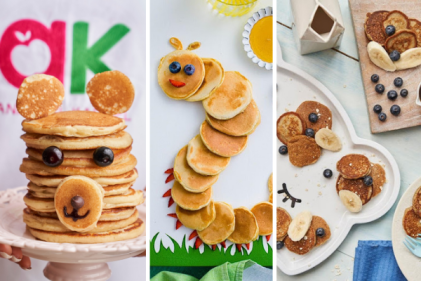Breastfeeding do’s and don’ts
The most common types of questions mothers contact the HSE’s ‘Ask Our Breastfeeding Expert’ service is for advice on the do’s and don’ts when breastfeeding. For example, can I take antibiotics whilst breastfeeding? Is it safe to use a sauna whilst breastfeeding? Or can I get pregnant whilst breastfeeding?
The HSE lactation consultants are on hand to give advice on any part of breastfeeding. They provide tailed information and expert advice on how to overcome common breastfeeding challenges, make breastfeeding work for the individual mother and baby and help the mother to meet their individual breastfeeding goals.
Pain while breastfeeding
Many breastfeeding mothers contact the ‘Ask Our Breastfeeding Expert’ service about pain while breastfeeding. Nipple pain is common in the early days of breastfeeding. This is because the nipples are not used to breastfeeding. The pain lasts for a short time, usually around one week. Soreness that continues throughout the breastfeed, or lasts for more than one week of breastfeeding, isn't normal.
A lactation consultants can help with advice on what might be causing the pain, where to go if pain persists and how to treat sore nipples.
Pumping
Questions about expressing breastmilk or pumping are another regular topic on the ‘Ask Our Expert’ service. Expressing milk means removing milk from your breast so you can store it later and feed it to your baby. Expressing your breastmilk is a very useful skill to learn. The amount of breast milk you need to express, and how often you express, will depend on the situation. For example, you may need to express more for your newborn baby if they are unable to breastfeed. The amount you express for an older baby will depend on the number of times they breastfeed each day.
The HSE lactation consultants can provide advice on when and how to express breast milk, breast pumps, storing and heating expressed breast milk.
What is okay to drink/eat while breastfeeding
Common concerns for new breastfeeding mothers are around what is and isn’t okay to eat and drink when breastfeeding. The HSE lactation consultants can provide advice. Unlike during pregnancy, breastfeeding mothers do not need a special diet. There is no need to exclude any particular foods from your diet. Make sure to drink plenty of water whenever you feel thirsty.
If you take medication while breastfeeding, it will be transferred to your baby through breast milk. In most cases, the amount passed to your baby is very small and unlikely to cause harm. But some medications can become concentrated in breast milk. A small number of these are not safe to take while breastfeeding. In most cases, there is another medication that can be safely used instead. Your GP or pharmacist can recommend suitable medication for your situation.
Milk supply
A common worry among new mothers is whether their baby is getting enough milk. By knowing how many wet and dirty nappies you should expect, you can tell if your baby is getting what they need.
The amount of milk you make depends on how often and how well your baby feeds at the breast.
You'll know your baby is getting enough milk if they are gaining weight and have regular dirty nappies. If your baby needs more milk than you are producing, you may need to breastfeed or express more often. This will increase your supply.
The HSE lactation consultant experts can help breastfeeding mothers if they have concerns about their milk supply.
This year the HSE is highlighting the ‘Ask our breastfeeding expert’ service available on mychild.ie. Lactation consultants can answer any query you might have about breastfeeding through email or live chat. The service has seen a 57% increase in people contacting it since April.
The mychild.ie website also includes extensive breastfeeding information, videos and guides - plus all the wider pregnancy and child health information from the HSE.








